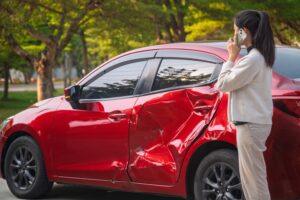
After a car accident, you should make sure everyone is safe, call emergency services, and get medical attention as soon as possible.
Those first few steps are the most important, no matter how serious the crash may seem. Next, call the police. Even if you are not sure about anyone being hurt. It’s important to get a police report and the moment of the crash is really your only opportunity.
The moments after a collision are confusing. You might be in shock, unsure of what happened, or uncertain about what to do next. Whether it’s a minor fender bender or a major crash, the impact can stay with you well beyond the scene.
From medical bills to insurance calls and time off work, the ripple effects are hard to ignore.
Understanding what happens next can make a stressful situation feel a little more manageable. If you need help sorting through the details or protecting your rights, speaking with a Washington D.C. car accident lawyer may be a helpful next step.
Stay Safe and Call for Help
If you’re able, move your car out of traffic and turn on your hazard lights. Check for injuries to yourself and anyone else involved. Then, call 911—even if the crash seems minor.
Emergency responders can check for injuries you may not feel right away, and the police can create a report that documents what happened. This report is often critical when filing an insurance claim or building a legal case.
If you’re in a safe position to do so, gather helpful information:
- Names and contact information for all drivers involved
- License plate numbers and insurance details
- Photos of vehicle damage, road conditions, and any visible injuries
- Names and contact info of any witnesses
Even a few quick pictures or notes can go a long way in the days to come.

Take Care of Your Health
It’s common to feel okay right after a crash, only to have symptoms show up hours—or even days—later. Don’t ignore discomfort, headaches, or stiffness. These may be signs of injuries like:
- Whiplash or soft tissue injuries
- Traumatic brain injuries (TBIs) and other trauma
- Back and neck pain
- Internal injuries
Getting checked out by a doctor as soon as possible creates a medical record tied to the crash. That documentation matters if you need to prove the injury was caused by the accident, not something unrelated.
Keep track of all visits, diagnoses, and treatments. Save receipts and instructions from medical providers. It’s a lot, but it helps protect both your health and your ability to seek reimbursement later.
Be Mindful When Talking to Insurance
You’ll likely be contacted by insurance companies soon after the crash. The best practice is to not talk to insurance – even your own – if there is any chance you are hurt.
If you dotalk to your own insurer, provide basic details, but avoid speculation or assigning blame. Do not speak with the other driver’s insurance, and remember:
- You don’t have to give a recorded statement
- You shouldn’t admit fault, even casually
- It’s okay to say you need time or want to consult someone before answering further
Insurance adjusters are trained to ask questions that may reduce your compensation. If anything feels unclear or uncomfortable, take a step back and get advice.

Emotional Recovery Matters, Too
The stress of a crash isn’t just physical. Many people experience:
- Difficulty sleeping
- Anxiety about driving again
- Trouble focusing at work
- Overwhelm from juggling logistics, bills, and appointments
Give yourself space to process the experience. Rest, check in with loved ones, and seek professional support if needed. Car accidents can affect every part of life—not just your vehicle or physical health.

Common Mistakes to Avoid
In the rush to move forward, it’s easy to make choices that hurt your recovery or legal standing. Some of the most common mistakes we see include:
- Not seeking medical attention quickly
- Downplaying injuries or symptoms
- Posting about the crash on social media
- Accepting a settlement offer too soon
- Failing to follow up with doctors or therapy
Avoiding these missteps can help protect your long-term well-being and your ability to recover damages if needed.
How to Handle a Car Accident Long Term
Many people assume that once the cars are towed away and the paperwork is filed, the situation is resolved. But in reality, what to do after a car accident involves much more.
You may be dealing with injuries that linger, vehicle repairs that take weeks, or insurance negotiations that stretch on longer than expected.
That’s when having someone on your side can make all the difference. If your injuries are serious, if you’re being blamed unfairly, or if you just feel unsure about how to move forward, it might be time to get legal help.
When Legal Guidance Makes Sense
Not every accident requires a lawyer. But if you‘re facing pushback from insurance, unsure about fault, or feeling overwhelmed by paperwork, legal guidance can provide clarity and protection.
At Kitchel Law PLLC, we help people who have been injured in car accidents understand their rights and take the right steps forward. We speak directly with clients, manage communication with insurance companies, and work to secure compensation for medical bills, lost income, and long-term recovery needs.
We work on contingency, which means you don’t pay unless we recover compensation for you. More importantly, we’re here to take the pressure off so you can focus on what matters most: healing and moving forward.
Schedule a free consultation today.


